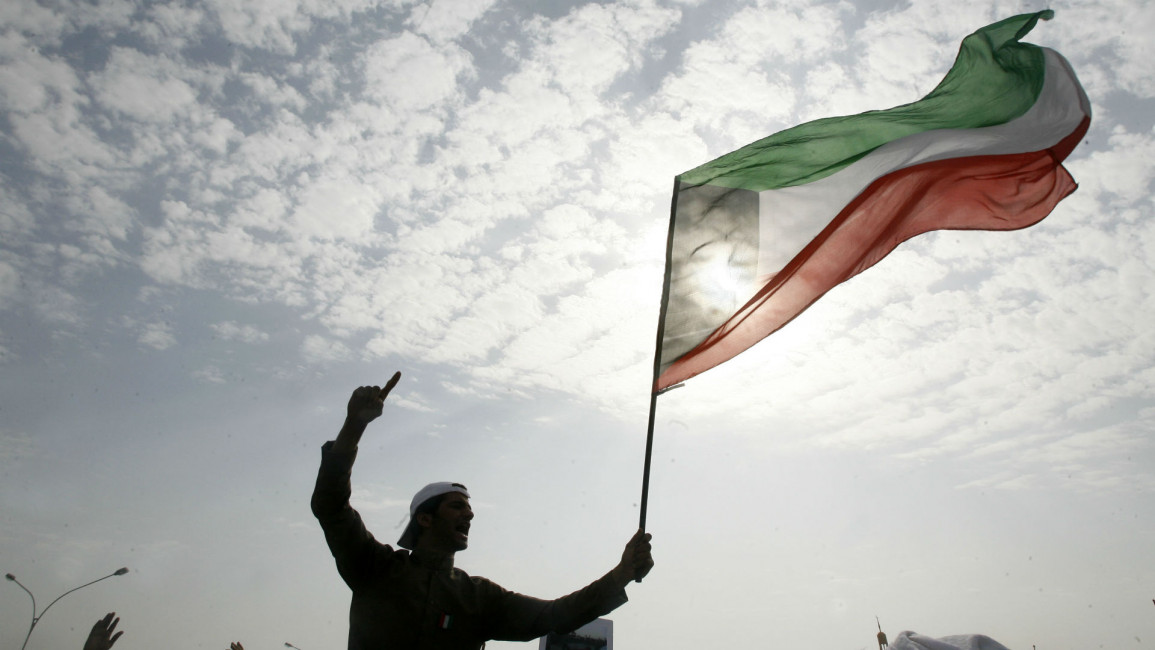Kuwait soldier shortage sees 'stateless' called up for duty
Kuwait has decided to allow thousands of stateless people to enlist in the military to tackle a shortage of troops, a military source has said.
The Kuwaiti ministry of defence announced on Saturday that the sons of some military personnel would now be allowed to enrol in the army.
The sons of soldiers who served in the military for 30 years and the sons of soldiers killed or missing in action would be eligible to join, state media reported.
More than 110,000 stateless people - known as Bidoons - have lived in Kuwait for decades, claiming the right to citizenship in the oil-rich emirate and the generous welfare benefits that accompany it.
"Accepting Bidoons into the military despite the restrictions imposed on them in other state institutions... has come as part of a regional policy that aims to increase the number of Kuwaiti troops in the Peninsula Shield Force," a source in the ministry of defence told The New Arab.
"Enrollment in the army has declined sharply over the past ten years and many servicemen have recently retired, forcing military leaders to give in and accept Bidoons," the source, speaking on condition of anonymity because he was not authorised to speak to reporters, said.
He added that over 15,000 Bidoons were expected to enlist over the next three years under the new regulations.
Kuwaiti lawmaker Askar al-Enezi has praised the move as "compassionate".
"We commend the move the accept the sons of Bidoon soldiers… in recognition for their fathers and grandfathers service to Kuwait and defence of this country," Enezi said.
Some Bidoons are the descendants of Bedouin tribesmen who did not ask for citizenship when Kuwait became independent in 1961. Others are Arabs who joined the army in the 1970s and 80s but were never granted citizenship.
Since independence, Bidoons have formed the backbone of its military and police forces.
However, in 2004 the military began a campaign to eliminate the Bidoon from military service, according to military news site Global Security.
Last year, the Comoros Islands said it was ready to take in thousands of Bidoons in return for cash or aid, causing huge controversy among rights groups.
"Kuwait's rulers have come up with a solution to the 'problem' of Bidoons, whose lack of citizenship rights despite historic ties to the country has frequently led to international criticism," Human Rights Watch said.
"Kuwait should recognise that pawning off the Bidoons population on another state will not make its obligations disappear," the group added.



